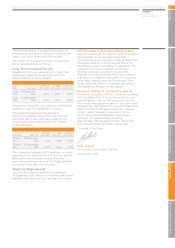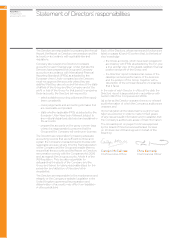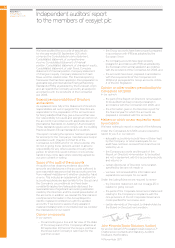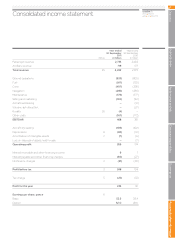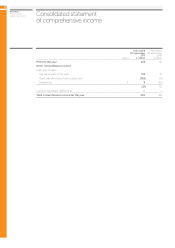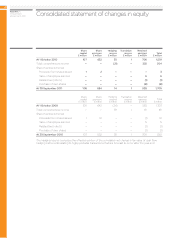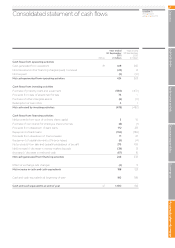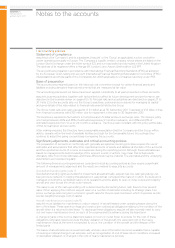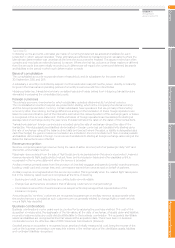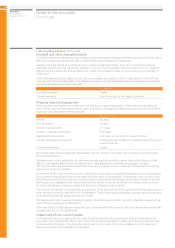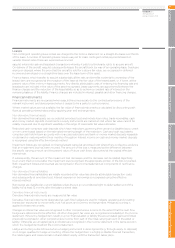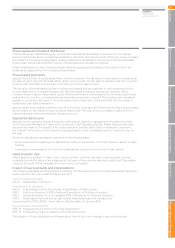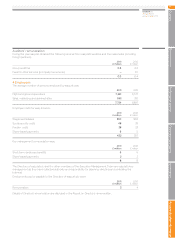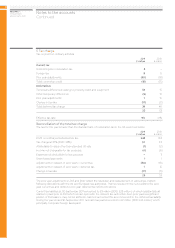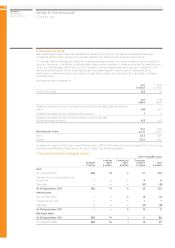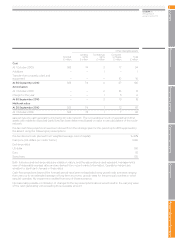EasyJet 2011 Annual Report Download - page 73
Download and view the complete annual report
Please find page 73 of the 2011 EasyJet annual report below. You can navigate through the pages in the report by either clicking on the pages listed below, or by using the keyword search tool below to find specific information within the annual report.
Tax (note 5)
In drawing up the accounts, estimates are made of current and deferred tax assets and liabilities for each
jurisdiction in which easyJet operates. These estimates are affected by transactions and calculations where the
ultimate tax determination was uncertain at the time the accounts were finalised. The issues involved are often
complex and may take an extended period to resolve. Where the final tax outcome of these matters is different
from the amounts that were initially recorded, such differences will impact the current and deferred tax assets
and liabilities in the period in which such determination is made.
Basis of consolidation
The consolidated accounts incorporate those of easyJet plc and its subsidiaries for the years ended
30 September 2010 and 2011.
A subsidiary is an entity controlled by easyJet. Control exists when easyJet has the power, directly or indirectly,
to govern the financial and operating policies of an entity so as to benefit from its activities.
Intragroup balances, transactions and any unrealised gains and losses arising from intragroup transactions are
eliminated in preparing the consolidated accounts.
Foreign currencies
The primary economic environment in which a subsidiary operates determines its functional currency.
The consolidated accounts of easyJet are presented in sterling, which is the Company’s functional currency
and the Group’s presentation currency. Certain subsidiaries have operations that are primarily influenced by
a currency other than sterling. Exchange differences arising on the translation of these foreign operations are
taken to reserves until all or part of the interest is sold, when the relevant portion of the exchange gains or losses
is recognised in the income statement. Profits and losses of foreign operations are translated into sterling at
average rates of exchange during the year, since this approximates the rates on the dates of the transactions.
Transactions arising in foreign currencies are recorded using the rate of exchange ruling at the date of the
transaction. Monetary assets and liabilities denominated in foreign currencies are translated into sterling using
the rate of exchange ruling at the balance sheet date and (except where the asset or liability is designated as a
cash flow hedge) the gains or losses on translation are included in the income statement. Non-monetary assets
and liabilities denominated in foreign currencies are translated into sterling at foreign exchange rates ruling at the
dates the transactions were effected.
Revenue recognition
Revenue comprises passenger revenue, being the value of airline services (net of air passenger duty, VAT and
discounts), and ancillary revenue.
Passenger revenue arises from the sale of flight seats and is recognised when the service is provided. Unearned
revenue represents flight seats sold but not yet flown and is included in trade and other payables until it is
recognised in the income statement when the service is provided.
Ancillary revenue primarily arises from the provision of checked baggage and speedy (priority) boarding services,
booking, credit card and change fees, and commissions earned from services sold on behalf of partners.
Ancillary revenue is recognised when the service is provided. This is generally when the related flight takes place,
but in the following cases revenue is recognised at the time of booking:
–Booking and credit card fees as they are contractually non-refundable
–Change fees as the service provided is that of allowing customers to change bookings
–Commissions earned from travel insurance as easyJet acts solely as appointed representative of the
insurance company
Amounts paid by “no-show” customers are recognised as passenger or ancillary revenue as appropriate when
the booked service is provided as such customers are not generally entitled to change flights or seek refunds
once a flight has departed.
Business combinations
Business combinations in prior years were accounted for by applying the purchase method. The cost of the
acquisition is measured at the aggregate of the fair values, at the date of exchange, of assets given and liabilities
incurred or assumed plus any costs directly attributable to the business combination. The acquiree’s identifiable
assets and liabilities are recognised at their fair values at the acquisition date. There have been no business
combinations since the effective date of IFRS 3 Business Combinations (Revised).
Goodwill arising on acquisition is recognised as an asset and initially measured at cost, being the excess of the
cost of the business combination over easyJet’s interest in the net fair value of the identifiable assets, liabilities
and contingent liabilities recognised.
easyJet plc
Annual report
and accounts 2011
GovernanceCorporate responsibility
Business review Performance and risk
Overview Accounts & other information
71


